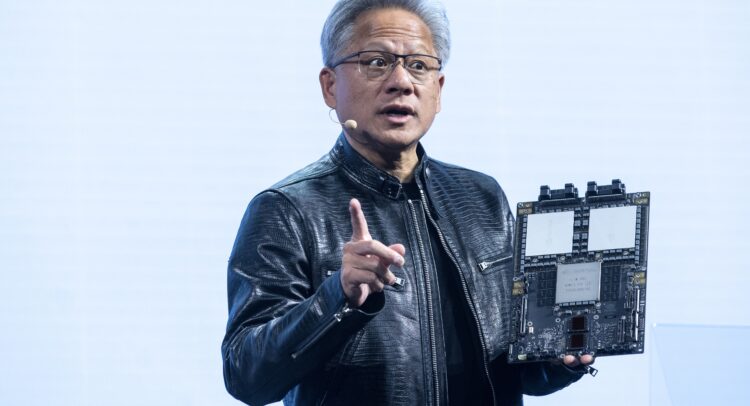
Nvidia CEO Jensen Huang has downplayed worries from U.S. officials that the company’s chips could aid China’s military. Ahead of a visit to China, Huang emphasized that Beijing “simply can’t rely” on U.S.-made technology for military purposes.
Huang’s Take on Export Controls and AI Leadership
Speaking to CNN, Huang said China’s military use of Nvidia chips is limited by export controls and that China already has ample computing capacity. He criticized U.S. restrictions on advanced AI chip exports, calling them counterproductive to America’s goal of maintaining tech leadership.
He stressed that for the U.S. to lead in AI, its technology must be accessible globally, including in China, which hosts about half of the world’s AI developers.
The latest U.S. restrictions on Nvidia sales to China, implemented in April, are projected to cost the company billions. Huang confirmed these measures have cut Nvidia’s China market share by nearly half.
This interview came shortly before Huang’s second trip to China this year, with reports indicating Nvidia is developing chips that comply with current export rules.
Huang recently met with President Donald Trump and was cautioned by U.S. lawmakers to avoid engagements with Chinese military-linked entities.
According to analyst Daniel Newman of The Futurum Group, Huang is balancing the need to avoid antagonizing Washington while preserving access to the Chinese market and potential investments.
The Reality of Military Use
Despite Huang’s reassurances, experts remain skeptical about denying China’s military use of Nvidia’s technology.
Newman noted Nvidia’s advanced AI chips are likely central to any country’s AI training, including military applications. A U.S. official recently linked Chinese startup DeepSeek — which used Nvidia chips — to China’s military and intelligence.
Huang acknowledged concerns about DeepSeek’s R1 open-source model but said no evidence suggests it poses a threat.
Huang called the R1 model “revolutionary” for enabling startups and countries to participate in AI development. He concluded by recognizing the complex dynamic between the U.S. and China: “We are competitors, but we are highly interdependent… it is fine to respect our competitors.”
Author’s Opinion
The tension between fostering global technological innovation and protecting national security interests is real and complicated. While open collaboration drives AI progress, it’s naive to assume advanced tech won’t be leveraged for military purposes by any nation. Companies like Nvidia must navigate these competing demands carefully, balancing commercial opportunities with ethical and geopolitical responsibilities.
Featured image credit: TipRanks
For more stories like it, click the +Follow button at the top of this page to follow us.
